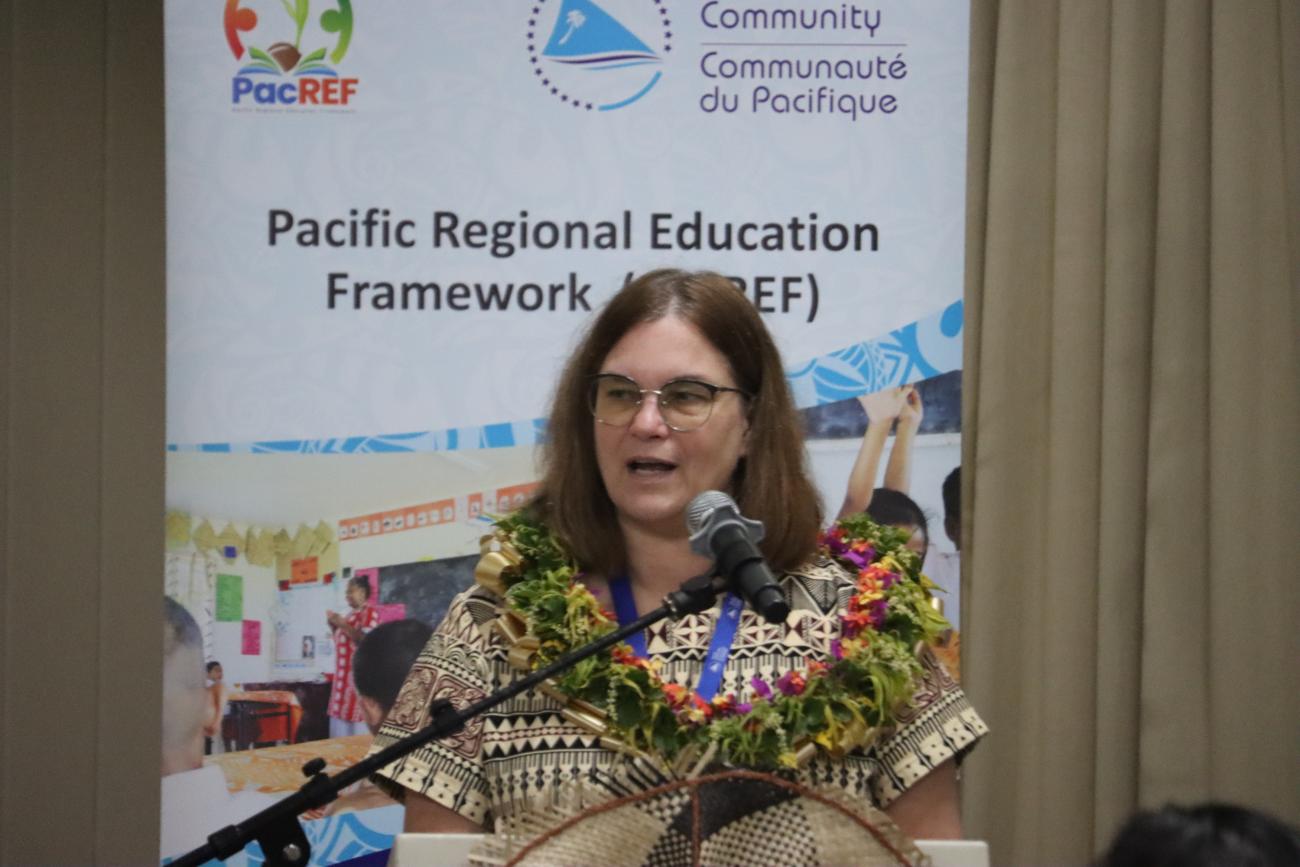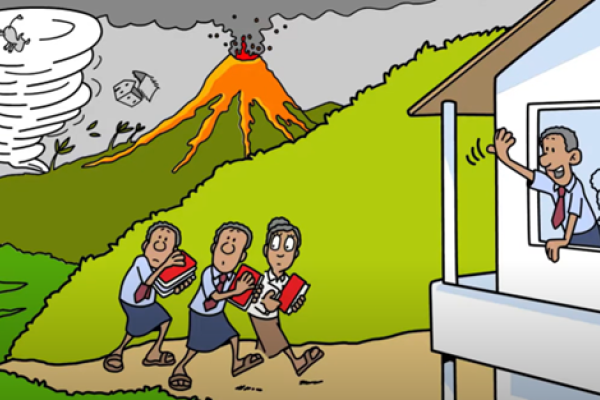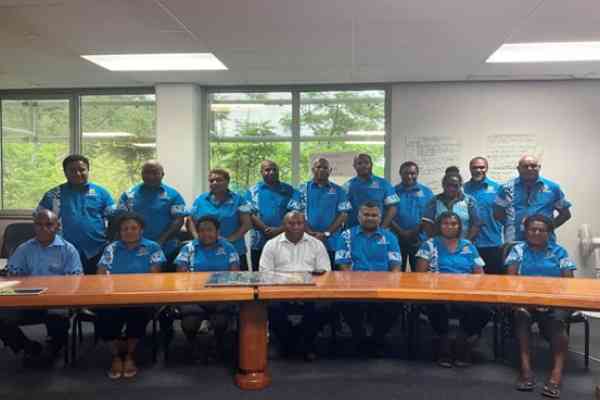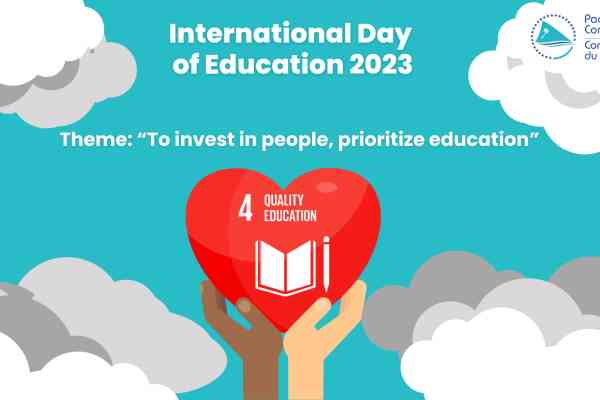(Contenu disponible en anglais uniquement)
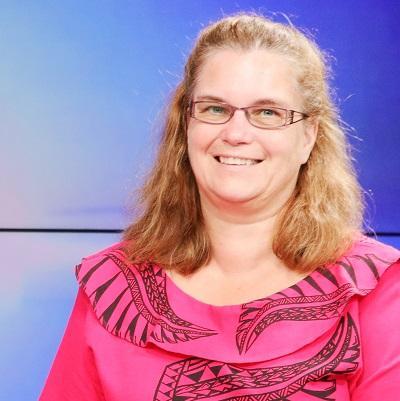 Greetings to all, and best wishes for 2024.
Greetings to all, and best wishes for 2024.
I am Michelle Belisle, the director of the Educational Quality and Assessment Programme, or EQAP, here at SPC, and I am happy to welcome all of you joining us, either in person or virtually, to our International Day of Education event. 2024 marks the 6th time the International Day of Education will be celebrated, and the global theme for the day is "Learning for lasting peace".
At the global level, the theme is oriented towards the 2 billion people who live in conflict-affected areas. However, we can contextualise the theme to the Pacific as our region is vulnerable to climate-related disasters that impact the peace of our people and cause disruptions in learning.
To put this in terms of statistics, in the Pacific, more than 45% of the population lacks access to basic drinking water facilities, and more than two-thirds live without access to basic sanitation. In addition, drinking water and wastewater facilities are continuously impacted by the increase in extreme weather events, especially with 60% of the region’s built infrastructure located within 500 metres of the coast.
So, with those statistics in mind, how might we ensure that students across the region receive high-quality education despite the impacts of climate change and other related challenges?
The Pacific’s education leaders have really thought about this and have articulated a set of education priorities for the region, which are outlined in the Pacific Regional Education Framework (PacREF).
The PacREF implementing agencies work together with countries under a multi-year plan to ensure that all learners areable to access quality and future-focussed education in a safe and supportive environment.
As one of the PacREF implementing agencies, the Pacific Community’s Educational Quality and Assessment Programme has been working on a number of initiatives across 15 countries. These activities include updating regional standards for teachers and school leaders to ensure that the Pacific standards are relevant in the current context of the region.
In addition to our ongoing work on the Pacific Islands Literacy and Numeracy Assessment (PILNA) programme, aimed at measuring and improving reading, writing and numeracy proficiency levels in primary school, EQAP has a robust work calendar for 2024 that includes work around piloting the new Pacific Assessment for Lower Secondary (PALS) in each of the sub-regions of the Pacific, accrediting national/regional qualifications to ensure regional recognition of learning and developing a regional research bank to improve the quality of education at all levels of learning.
As a key feature of today’s celebrations, the EQAP team, together with the Fiji Ministry of Education will be launching PILNA TV, a series of videos produced to support teachers in their reading instruction to improve literacy levels across the Pacific.
Efforts to improve the quality of education will not only help the region overcome the impacts of climate change but also help make the Pacific more resilient – which is in line with this year’s education day theme: “Learning for lasting peace”.
In closing, I wish all of you a Happy International Day of Education!
